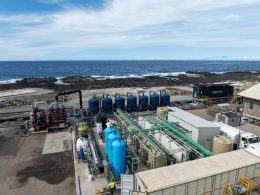The Climate Bonds Initiative has introduced its Food Value Chain Criteria under the Climate Bonds Standard and Certification Scheme, aiming to steer climate finance towards reducing emissions in the post-production stages of the global food system—a sector long overlooked in climate policy despite its significant carbon footprint.
While agri-food systems contribute approximately 35% of global greenhouse gas (GHG) emissions, more than a third of these emissions (33.8%) originate beyond the farm gate, including from storage, transport, processing, packaging, distribution, consumption, and waste. The newly launched criteria provide a science-based framework to evaluate investments—such as debt instruments and assets—targeted at these post-production activities.
The criteria complete a comprehensive framework for agri-food systems under the Climate Bonds Standard, which already includes guidance on sustainable input use, deforestation-free crop and livestock production, and alternative proteins. The latest addition ensures the entire food value chain is considered in climate finance strategies.
Developed in consultation with technical and industry working groups, the criteria emphasise localised, context-specific interventions. The framework encourages solutions that are scalable, affordable, and aligned with environmental and social safeguards.
“The urgency to address emissions across the food value chain is growing,” said Aishwarya Sankar, Sustainability Analyst at the Climate Bonds Initiative. “This framework enables investors to support climate-aligned solutions in areas such as cold storage, transport, food waste, and household consumption.”
Industry experts have underscored the value of green certification systems in de-risking investment and aligning with international sustainability standards. Francesca Nugnes of PARM/IFAD, a member of the technical working group, noted that such frameworks can support sustainable water use, traceability, and climate-resilient farming techniques.
Marjolien Hanssen of Rabobank, a member of the industry working group, said the criteria will support the growth of sustainable transactions within the food sector. “Robust and trustworthy certification standards are vital for developing sustainable capital markets and supporting the transition to a low-carbon food economy,” she stated.
The initiative comes at a time when post-farm emissions are rising faster than emissions at the production level, particularly in high- and middle-income countries. Addressing these emissions is seen as essential for meeting global climate targets.
The development of the Food Value Chain Criteria was funded by the Gordon and Betty Moore Foundation through The Finance Hub, which supports initiatives to advance sustainable finance.
















